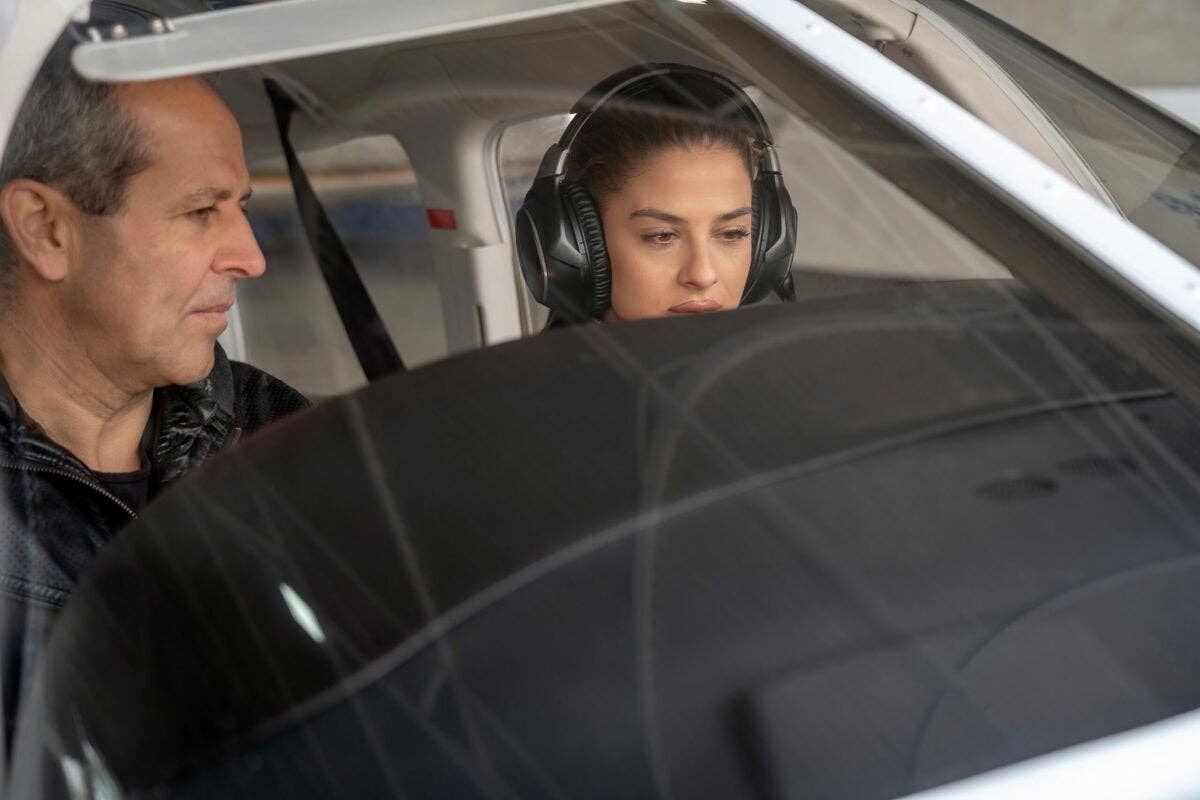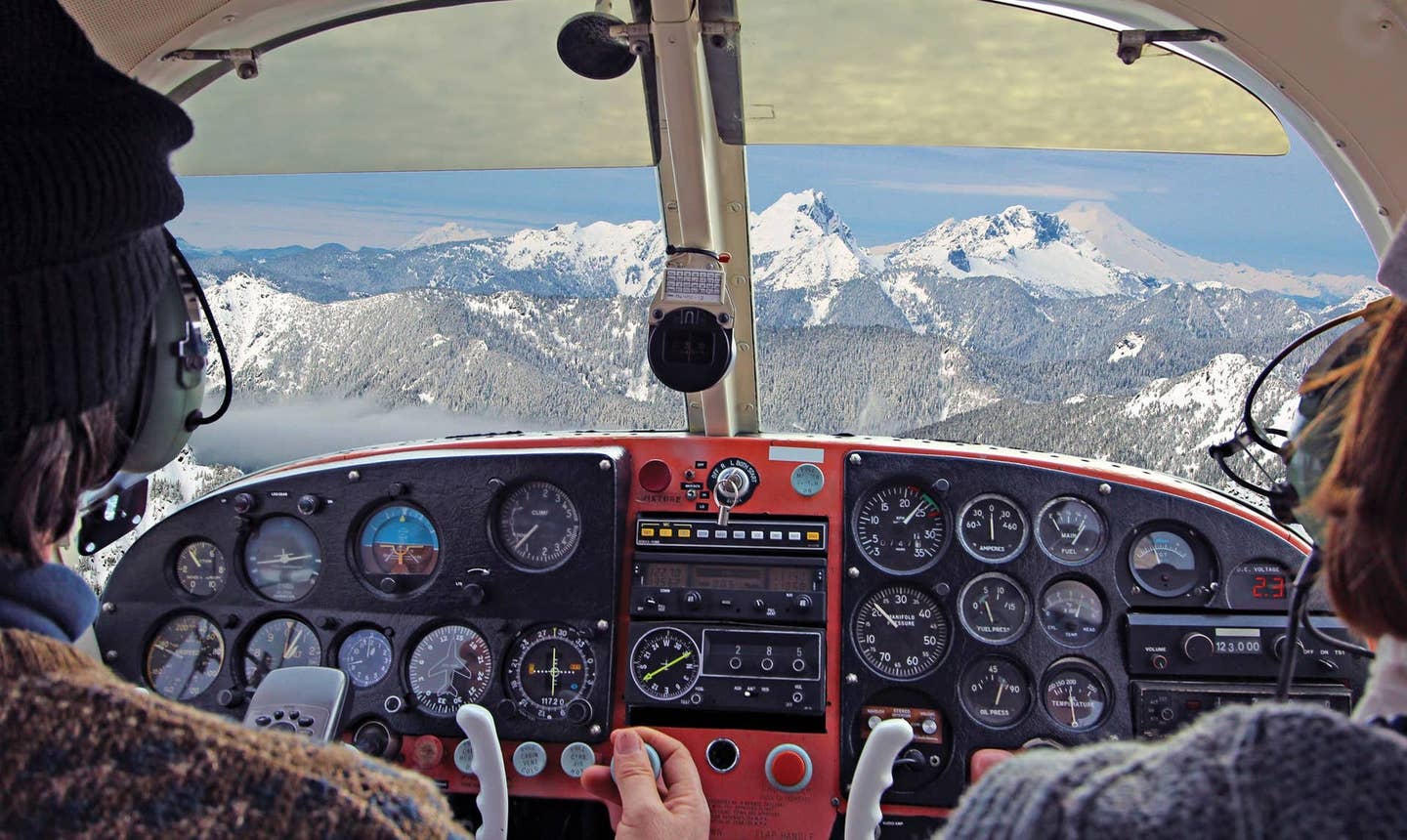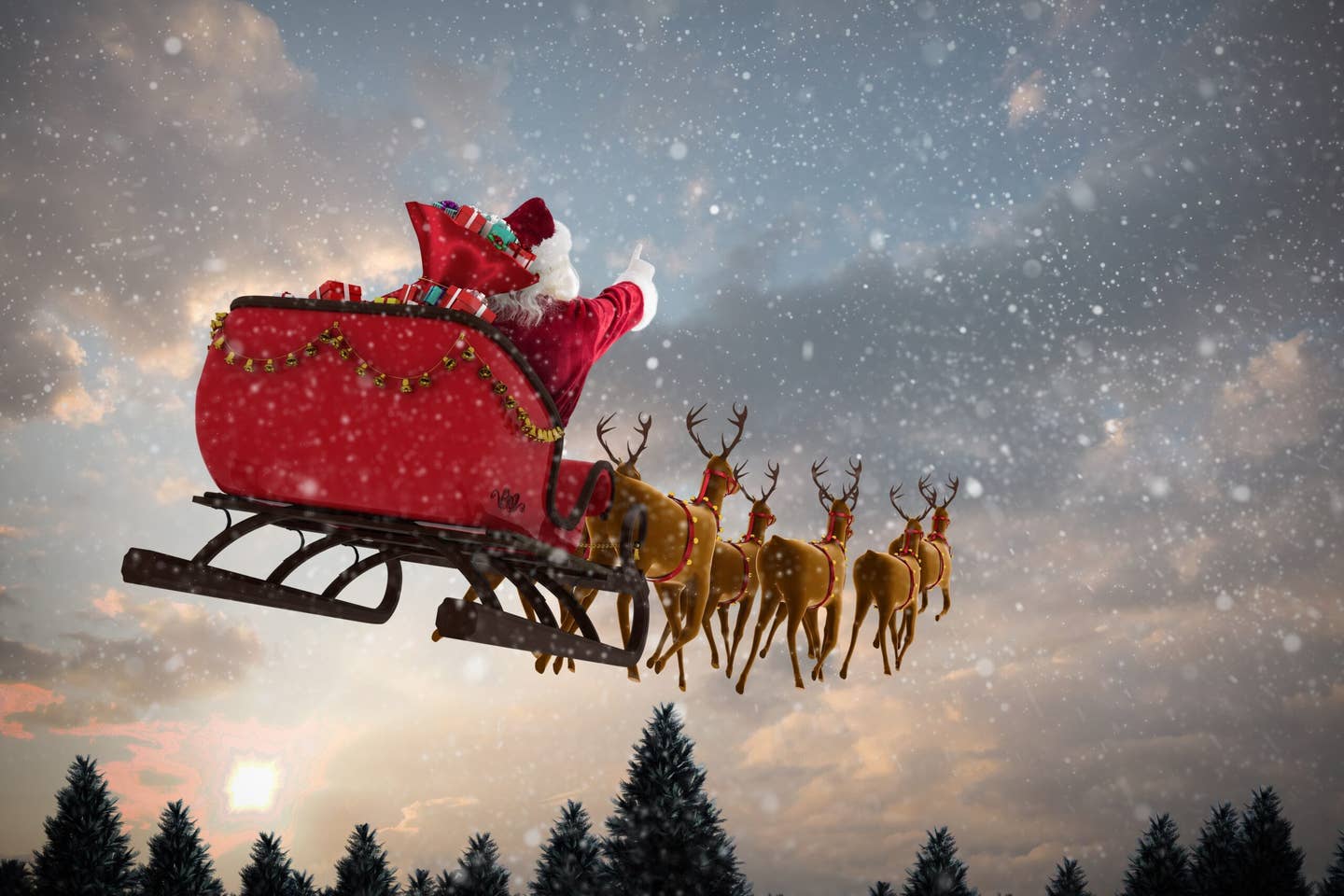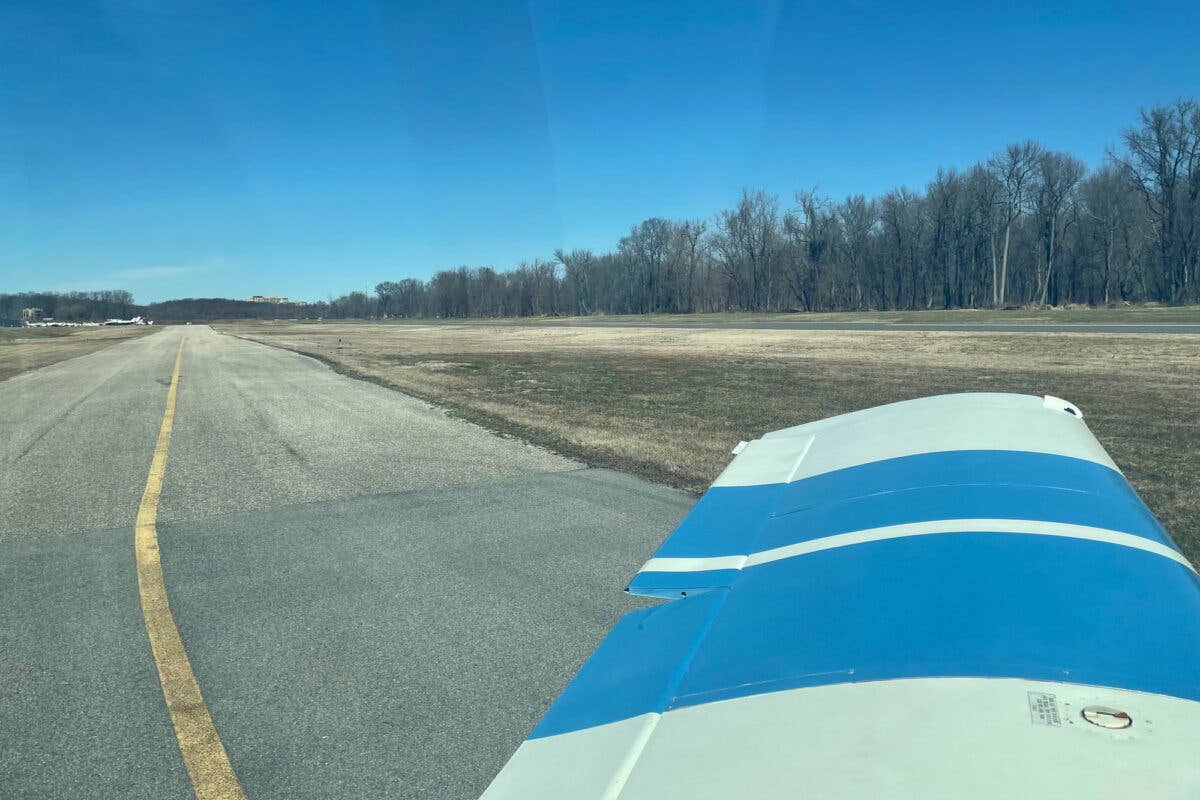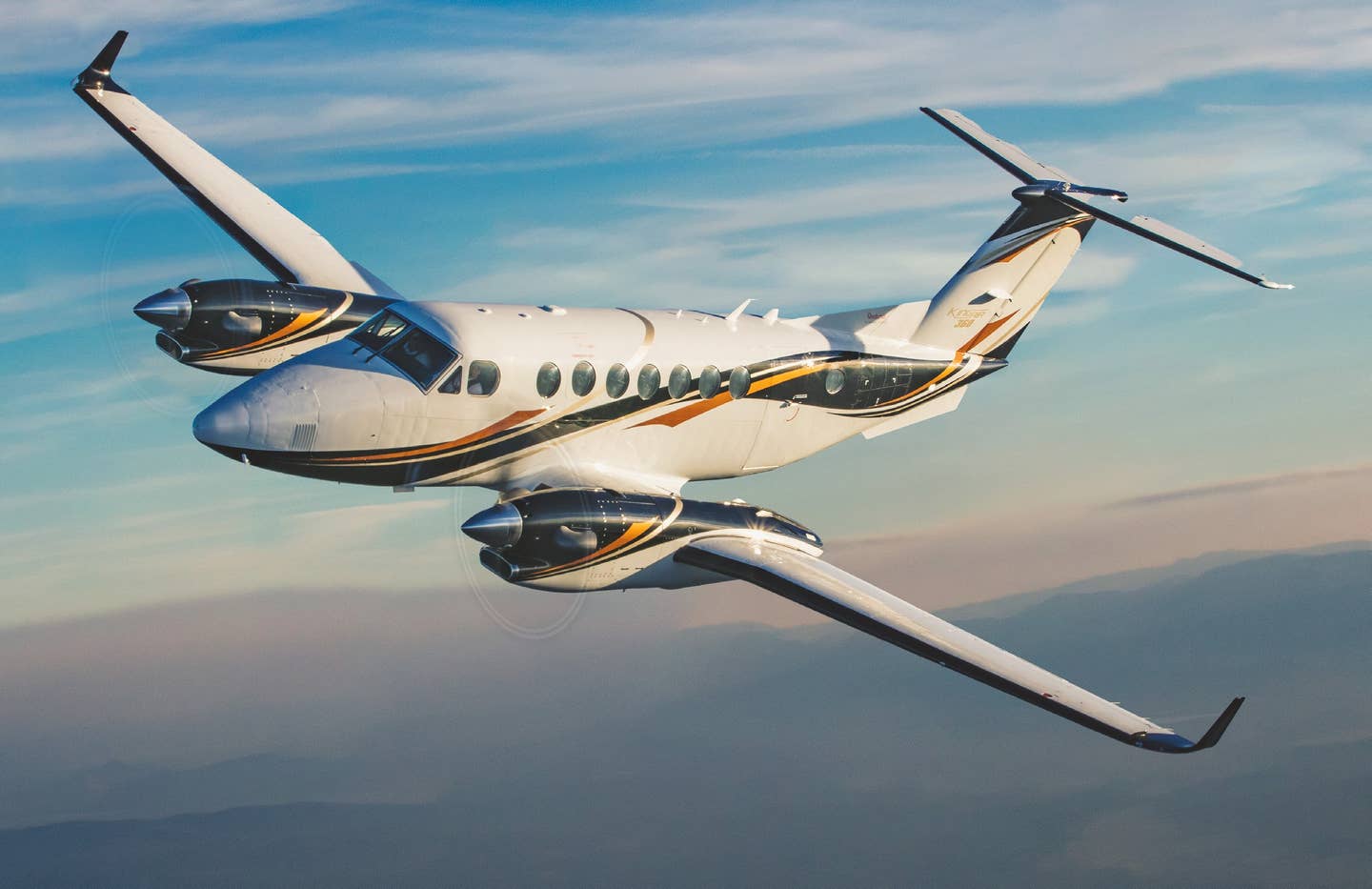
** Though I never got to fly the 182 on our trip to the
Bahamas, I learned more than I’d bargained for.**
It was late January 1962 and my sister Mary and I had been taking flying lessons for about a month, but I don't think either of us had soloed yet. The Ercoupe — loaned to us by an incredibly generous friend — had sat forlornly in the weeds for some time, so there were issues: little ones like nests of assorted critters and big ones like a nosewheel tire beyond repair and a leaky wing tank. In this classic Ohio Valley winter, ice and snow alternated with rain and freezing rain and the skies were a monotonous gray overcast. Even getting N341 to the gas pump was a challenge; whenever things began to thaw the sod became a quagmire of mud. But, hey, life was good; "weather" or not, we were learning to fly.
Actually, I was grounded … sort of. My father was less than pleased that the straight A's of my freshman year in college had fallen to mostly B's, and even less pleased when he discovered why — I was taking flying lessons and "majoring" in airplanes. Anglo-Saxon literature wasn't nearly as interesting as Stick and Rudder and learning the intricacies of an E-6B computer. When I got downtown on the city bus each morning I was supposed to transfer to the Green Line and Villa Madonna College in Covington, Kentucky. But I could also hop on an East End bus that ran out to Lunken Airport, and the school allowed unlimited class cuts after the first year. Before my parents left for a vacation in Mexico, Dad declared the airport off-limits, locked the family car in the garage, and left his ancient stick-shift station wagon in the driveway. Worse, he put a chain with a padlock through the propeller of the Ercoupe.
It doesn't take long for any normal 18-year-old to master the operation of a stick-shift car. Sure, it was a little hard on the gears and a source of huge merriment to my friends as we bucked along — but learn I did. Then Mary and I convinced a young mechanic to use a bolt cutter on the chain through the propeller, saying she'd talked to Dad and he said it was OK — he'd forgotten about the fuel tank repair. Nobody would have bought this story coming from me, but then — and to this day — nobody doubts my gentle, shy, guileless sister (whom I still occasionally terrorize into lying).
Our instructor, recently graduated from the University of Cincinnati, was building time at the small flying school at one end of the field while his friend instructed on the other end and finished up at Xavier University. They'd occasionally join up in the practice area — Larry Whitesell in Aero Services' Piper Colt and Vince Wynn in Cardinal's Aeronca Champ — until one morning when Larry popped up under his buddy's wing and discovered the figure in the back seat wasn't the tall, gangly Vince but a burly FAA inspector named Dan Wright, giving a private pilot check ride. Anyway, these guys dreamed up a scheme to fly to the Bahamas for a few days in a Cessna 182, owned and used by a local funeral director to haul bodies. If Mary and I came along and helped with expenses, we'd not only escape the dreadful weather but "get all your cross-country dual" in one trip.
I thought it was a splendid idea, but Mary, still feeling guilty about the bolt cutter, insisted we get permission from our parents, off fishing in the wilds of Mexico.
Cross-country instruction combined with long trips to exotic places isn't uncommon in today's sophisticated airplanes. In 1962, it was. I was certain that, if Mary were able to get through on the phone, my parents would give this proposal a resounding "no." So, like a spoiled brat having a meltdown, I sat in the middle of the living room floor that night and polished off an entire fifth of J.T.S. Brown from Dad's liquor cabinet. It was vile (I'd never drunk hard liquor before) so I chased swigs of bourbon with gulps of Coke. "Sick" doesn't begin to describe the aftermath. When I somehow made it to class the next morning my best friend demanded to know where in the hell I'd been; the stuff was oozing through my pores and I smelled like a distillery. Mary had been running the washing machine all night cleaning up after me but, amazingly, had gotten through to our parents. She said they'd given it an "OK (just keep an eye on Martha)," but I was almost too sick to care. To this day I can't abide the smell of bourbon.
The day of departure was awful: The weather was grim in Cincinnati and worse over the mountains in Tennessee and Georgia. Heck, Larry had a six-week-old instrument rating and Vince was working on his. (In those days, you could get a Commercial and CFI before the instrument rating). And that 182 was a big airplane with all kinds of instruments and radios. … Surely we could handle a little weather. Cooler heads prevailed and I spent all day up in the tower and downstairs in a tiny weather office where a Teletype machine spit out reams of yellow paper. We got off the following afternoon and landed at McGhee Tyson Airport (KTYS) in Knoxville, Tennessee, to check the weather again between there and Atlanta. Mary seemed fine with this, our first exposure to "cloud flying"; I thought it was pretty spooky. Fifty years later, I can still hear "TYS" in the Morse code coming steadily over the speaker as we approached Knoxville (only wimps wore headsets in those days).
We fueled up, waited a couple of hours on weather and, as darkness fell, launched on the leg to Jacksonville, Florida. Mary and I were huddled in back, wrapped in coats, since the "full on" position of the cabin heat knob didn't make much difference. Then, somewhere north of Atlanta, in the clouds at 10,000 feet, all the radios quit. After much gesturing, switch pulling and dial tuning, Larry remembered something about the radios in this thing tending to overheat. So off went the cabin heat, and about five minutes later (what seemed like an eternity), we were back on the air … to the relief of Atlanta Center and us. There was no talk of cabin heat after that; we shivered until south of Macon, where we broke out and descended to relatively warmer temperatures.
Life was good the next morning with a glorious flight down the east coast of Florida in warmth and bright sunshine. But Mary and I, still in back, were wondering when the "dual" part of this cross-country would begin. We rented the overwater stuff in West Palm Beach and headed out for Grand Bahama Island. I learned that engines do automatically get rough when you lose sight of land, but it was only 90 miles across and the island soon came into view. In those days, Grand Bahama was undeveloped — no resorts or casinos — but we found a small motel on the beach. My sister and I were shocked when Larry said the couple who ran the place weren't married; the couple who ran the place were shocked when two girls rented one room and the guys shared another.
I don't remember much about our two-day stay except that running water at the motel suddenly stopped running, which bothered absolutely nobody, including the management. We had the ocean and a pool for swimming, 7-Up for teeth brushing and a liquid called Planter's Punch for drinking. I found I liked rum a lot better than bourbon. Yeah, it was exotic and idyllic, but I was suddenly and hopelessly in love with my flight instructor so the middle of the Sahara would have been "perfect heaven."
Until we reached northern Tennessee the flight home was uneventful VFR, but Mary and I were resigned to watching from the back seat. Cincinnati was cold with a low stratus overcast, so Larry was cleared for the Lunken NDB 24 approach — the first full instrument approach I'd seen. I noticed a rough, thick layer of ice growing on the wing struts and couldn't see much when we broke out because the windshield was glazed over with ice. But my relief at being out of the icy clouds turned to disbelief when Vince said it was his turn. Back up into the overcast for another approach we went, Vince happily flying and Larry coaching. That 182 could carry some ice.
I still see them as good-looking, eager young bucks — these men who've flown millions of miles and retired from long and honorable airline careers: Larry starting at Central in Texas, retiring from Delta and flying for a Thai airline; Vince flying for National, then Pan Am and finally retiring from Delta.
Oh, yeah, Mary and I learned to fly cross-country … but we were in an Ercoupe to Indianapolis, not a 182 to the Bahamas.
We welcome your comments on flyingmag.com. In order to maintain a respectful environment, we ask that all comments be on-topic, respectful and spam-free. All comments made here are public and may be republished by Flying.

Sign-up for newsletters & special offers!
Get the latest FLYING stories & special offers delivered directly to your inbox

